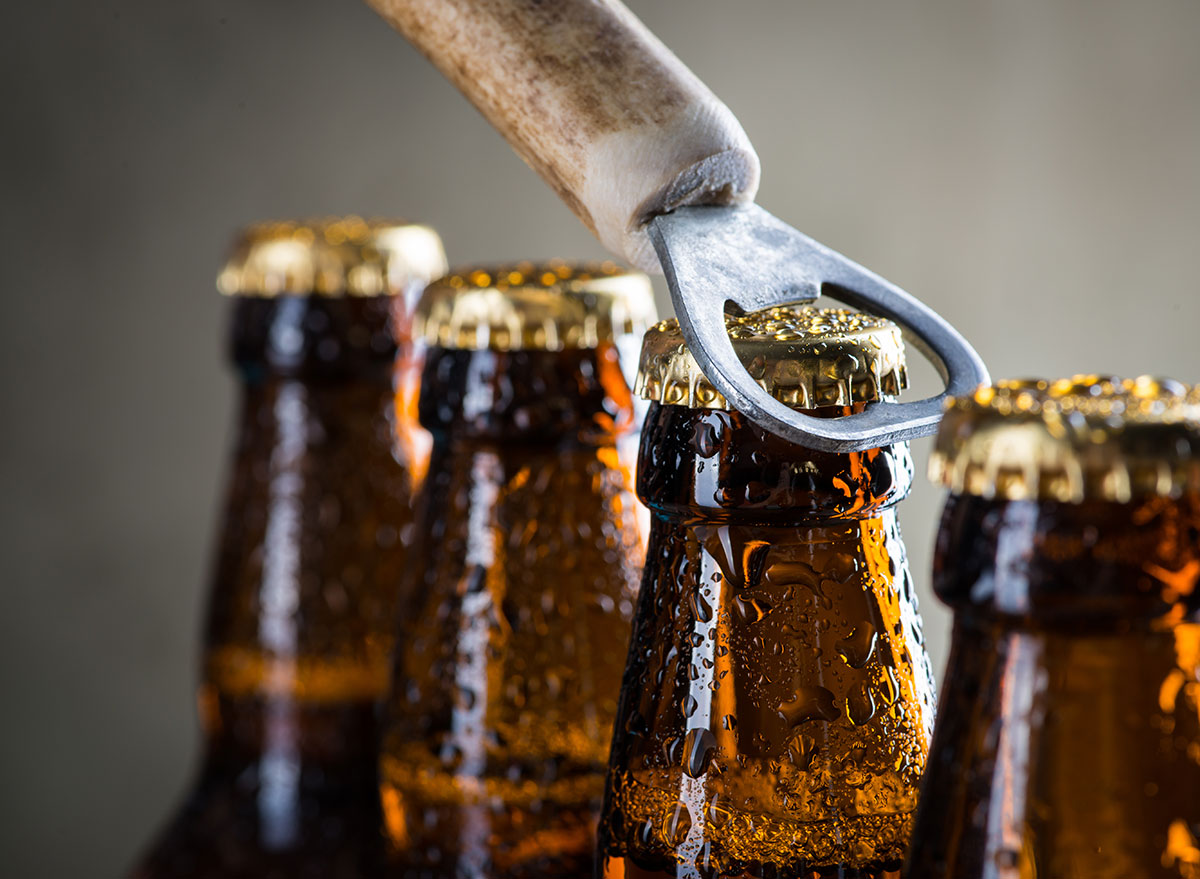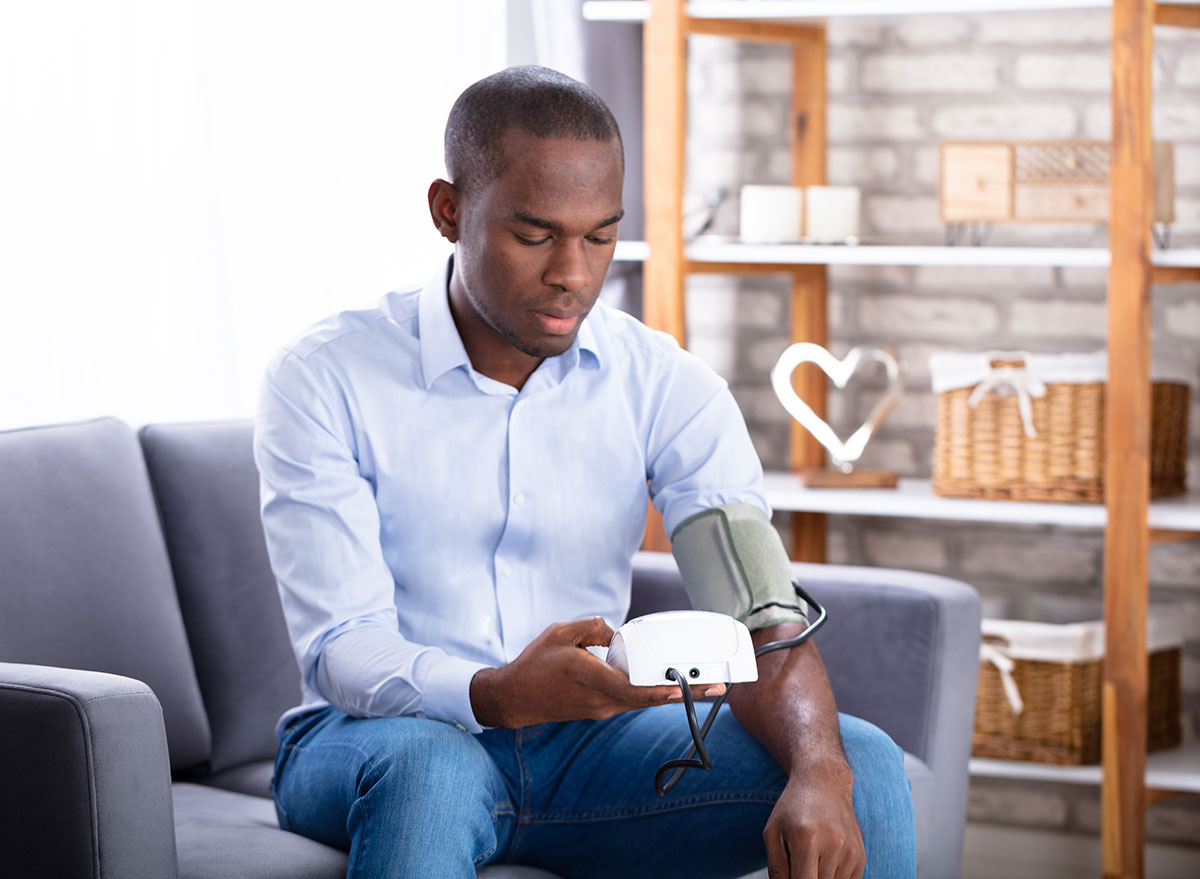Surprising Side Effects Alcohol Has On Your Heart, Says Science

For many, popping open a can of beer or pouring a glass of vino sounds like just the thing you need to unwind after a long day. While there can be many benefits to having that glass of wine on the regular, at what point does that routine become an unhealthy habit, and even worse, a cause for risk factors of disease?
We outlined just four side effects excess alcohol can have on your heart, so you have extra incentive to take it easy at happy hour (especially if you're a regular). After, don't miss The 7 Healthiest Foods to Eat Right Now.
It can lead to high blood pressure.

As Cedrina Calder, MD and member of our medical board shared in an article about high blood pressure, regularly drinking alcohol (and too much of it) can potentially lead to hypertension. This is especially the case if you don't eat well, smoke cigarettes, and don't exercise. For a woman, moderate drinking is defined as having one glass of alcohol a day, whereas men can have up to two. Heavy drinking, on the other hand, is defined as having more than three drinks per day for women and four for men.
Make sure you keep your alcohol intake in the moderate range, or even less, to keep your blood pressure levels in check.
May cause cardiomyopathy.

Having one too many beers each and every night can contribute to alcoholic cardiomyopathy, which refers to diseases of the heart muscle. According to the American Heart Association (AHA), there are several symptoms and signs of cardiomyopathy, but in most cases, the condition can cause the heart muscle to become enlarged, thicken, or become rigid. As the condition progresses, the heart can weaken, which reduces the amount of blood that is pumped through the body. Ultimately this can result in heart failure if left untreated.
May lead to atrial fibrillation

Binge drinking, which is defined as four or more drinks in a single session for women and five or more for men, could increase your risk of developing an irregular heart rhythm, such as atrial fibrillation (AFib). According to the Centers for Disease Control and Prevention, AFib is the most common type of heart arrhythmia, described as a quivery or fluttery heartbeat. If left untreated, AFib can increase a person's risk of stroke.
Increased risk of heart attack.

Interestingly, several studies have shown that moderate alcohol consumption may be associated with a reduced risk of cardiovascular disease and heart attack. However, when moderate consumption turns into a binge or regular heavy consumption, the opposite occurs—especially, if you've already survived one heart attack.
In fact, those who have had a heart attack and reported binge drinking are twice as likely to die from any cause, compared to those who don't binge drink. Another study revealed that drinking six to nine drinks in one sitting heightened drinkers' risk of heart attack and stroke by 30% for the following 24 hours.
Bottom line: Make sure you're not regularly overdoing it on the booze so you can keep your heart in tip-top shape. For more, be sure to read Surprising Side Effects of Not Drinking Alcohol, Say Experts.








